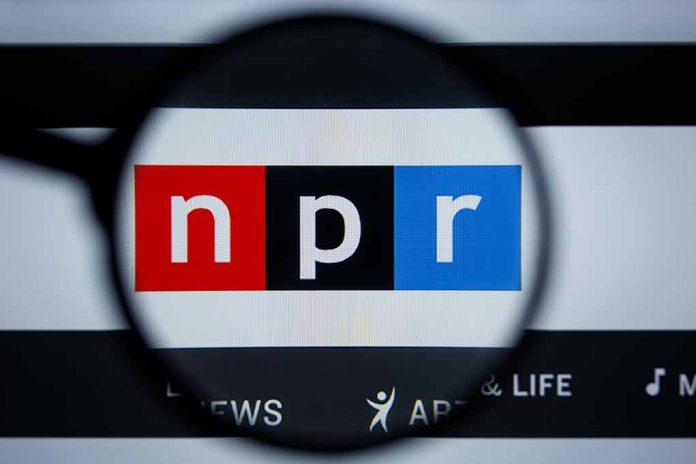
NPR CEO finally admits the organization’s blackout of the Hunter Biden laptop story was a major editorial mistake, raising serious questions about whether taxpayers should continue funding a media outlet repeatedly accused of left-wing bias.
Top Takeaways
- NPR CEO Katherine Maher acknowledged during congressional testimony that NPR should have covered the Hunter Biden laptop story more aggressively
- Republicans have compiled multiple examples of alleged bias at NPR, including misleading reporting on protests, promoting controversial books, and using questionable language in abortion coverage
- The House Subcommittee on Delivering on Government Efficiency (DOGE) held a hearing specifically to question NPR and PBS executives about alleged leftist bias
- Critics argue taxpayer funding of NPR constitutes a “regressive tax” that transfers money from working families to outlets that primarily serve affluent urban liberals
- NPR leadership maintains they are committed to unbiased reporting despite mounting criticism of their editorial decisions
NPR’s Hunter Biden Laptop Coverage Failure
During recent congressional testimony, NPR CEO Katherine Maher made a significant admission regarding one of the most controversial editorial decisions in the organization’s recent history. Appearing before the House Subcommittee on Delivering on Government Efficiency (DOGE), Maher acknowledged that NPR should have covered the Hunter Biden laptop story more thoroughly when it first emerged. This rare admission from the taxpayer-funded media outlet comes after years of criticism from conservatives who viewed the organization’s blackout of the story as evidence of deliberate political bias.
NPR Managing Editor Terence Samuel previously defended the decision not to cover the laptop story, stating in 2020: “We don’t want to waste our time on stories that are not really stories, and we don’t want to waste the listeners’ and readers’ time on stories that are just pure distractions.” This explanation has fueled ongoing criticism that NPR selectively covers news based on political considerations rather than journalistic merit, particularly when stories might reflect poorly on progressive politicians or causes.
🚨In the wake of the DOGE subcommittee hearing yesterday, Trump calls for the defunding of NPR and PBS, "IMMEDIATELY."
NPR Chief Katherine Maher is a woke radical and both orgs are leftwing propaganda mills.
Not a penny more of our tax dollars should be spent supporting them. pic.twitter.com/KTmqoKbpeg
— Western Lensman (@WesternLensman) March 27, 2025
Pattern of Editorial Decisions Under Scrutiny
The Hunter Biden laptop controversy represents just one of many editorial decisions that critics cite as evidence of NPR’s alleged bias. Republican lawmakers have identified numerous other instances they believe demonstrate a pattern of left-leaning editorial judgment. These include NPR falsely reporting that U.S. Park Police used tear gas on protesters outside the White House, promoting a book titled “In Defense of Looting” during the 2020 riots, and deciding to air audio broadcasting the abortion of an 11-week-old baby.
Additional controversies include NPR’s incorrect portrayal of Donald Trump Jr.’s Senate testimony, misleading use of photos in stories about right-wing extremism, and producing a podcast linking country music to racism. While some defenders argue these represent isolated editorial missteps rather than systematic bias, critics maintain they reveal a consistent worldview that filters news coverage through a progressive lens, potentially at odds with NPR’s mission to serve all Americans through objective journalism.
The Taxpayer Funding Question
The recurring accusations of bias have intensified debate about whether NPR and PBS should continue receiving federal funding. During the recent DOGE subcommittee hearing titled “Anti-American Airwaves: Holding the heads of NPR and PBS Accountable,” Republican lawmakers pressed executives on whether it’s appropriate for taxpayers to fund media organizations that many Americans perceive as politically biased. Despite declining audience numbers in rural America, both organizations continue to receive significant federal support through the Corporation for Public Broadcasting.
Michael Gonzalez from the Heritage Foundation, testifying at the hearing, argued that public funding of these organizations constitutes a “regressive tax” that forces working families to subsidize media primarily consumed by affluent urban liberals. He contended that NPR and PBS have “violated the public trust” through their editorial choices and therefore “forsaken their claim on public money.” In contrast, PBS CEO Paula Kerger defended her organization, emphasizing its local service mission and educational programming that has served communities for nearly 60 years.
Despite the admissions and apologies from NPR leadership regarding past editorial missteps, the debate over public broadcasting’s future funding model continues to intensify. As media consumption habits change and alternative news sources proliferate, questions about the proper role of taxpayer-funded media in America’s increasingly polarized information landscape remain unresolved. What seems certain is that both supporters and critics of public broadcasting will be closely monitoring NPR’s editorial decisions going forward.






















